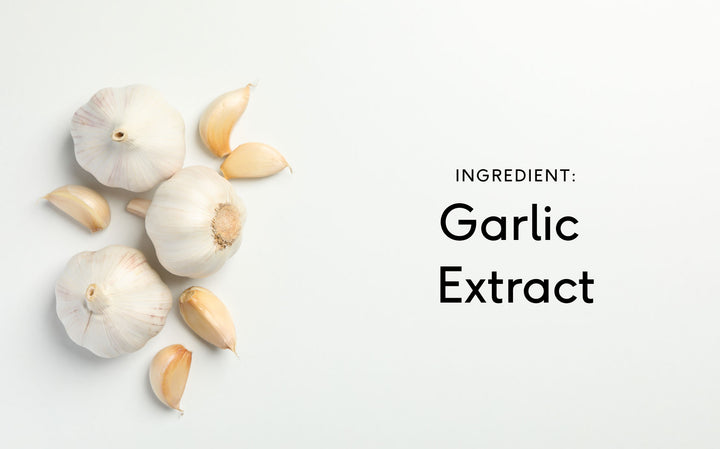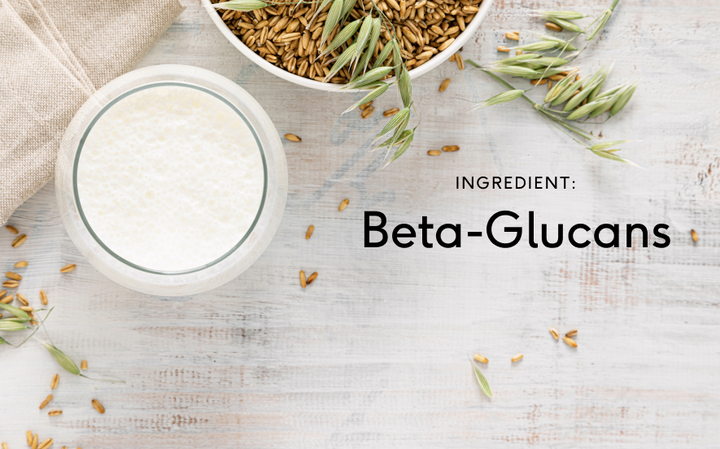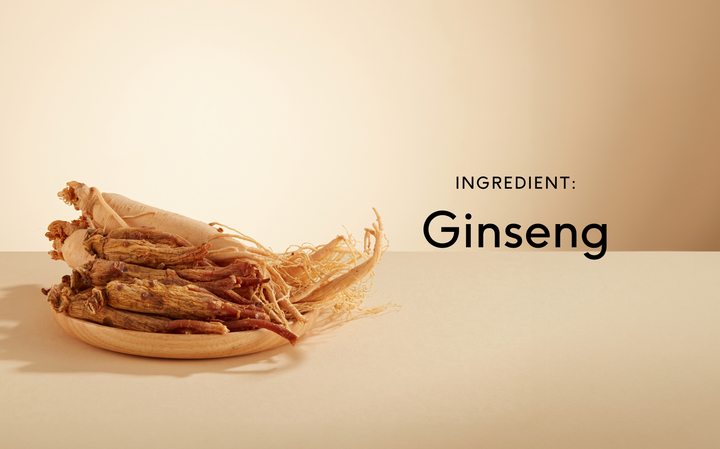Are Food Cravings Signs of Nutrient Deficiencies? And what to do about it
Table of contents

Cravings can sometimes be purely psychological. That chocolate cake you had last night, for instance, may have simply been so delicious that your mouth starts watering whenever you think about eating it again.
Most cravings, however, especially cravings that seem out of place, are the result of nutrient deficiencies. Your body is an incredibly complex system that is always trying to attain a state of perfect balance or homeostasis, and to this end, it provides you with a wide range of subtle signals that are designed to incentivise you to perform proper bodily maintenance.
Food cravings are one example of a type of signal that your body uses to tell you that it’s out of balance. Learn how to decode common cravings and provide your body with what it really needs in this guide.
Did you know that nutrient deficiencies can cause food cravings?
When your body is deficient in a particular nutrient, it sends a signal to your brain to pass along this information. Your conscious mind then decodes this signal as the urge to eat a certain type of food, but in reality, the signal that your body sent simply indicates that you should consume a certain nutrient, not an entire snack or meal.
If your body is deficient in magnesium, for instance, your brain will receive a signal that more magnesium is needed to maintain homeostasis. Since chocolate is an excellent (if somewhat unhealthy) source of magnesium, your mind then converts this biochemical nudge into the desire for chocolate.
In addition to magnesium, however, chocolate also contains sugar and other less-desirable substances, making it an unideal source of this essential nutrient. By learning what common food cravings really mean, you can avoid unhealthy, compulsive eating choices and boost your health by specifically targeting certain nutrients.
Why do you get food cravings?
Food cravings can be the result of a wide variety of psychological and physiological processes. It’s natural to desire foods that you particularly like, and this type of food craving is benign even if it has a tendency to get out of control. Psychological disturbances like depression and anxiety can also cause food cravings, and food cravings related to poor mental health usually stem from the dopamine rush that eating can provide.
If you experience a persistent craving that isn’t related to a negative mental state or your general food preferences, however, it’s likely that you have a nutrient deficiency. We’re all familiar with the old wives’ tale about pickles and pregnancy, but what urban legend lore doesn’t tell us is that craving salty foods while pregnant could simply be a sign of sodium deficiency due to increased blood volume.
To determine if your food craving is the result of a nutrient deficiency, ask yourself the following questions:
- Is the craving persistent? (Does a craving for a particular food last more than a few hours?)
- Is the craving independent of your mood? (We all tend to want a special snack to raise our spirits when we’re feeling down.)
- Is the craving outside of your usual food preferences? (Nutrient deficiencies can sometimes cause us to crave foods we already like, but craving unusual foods is just as common.)
If you answered “Yes” to all three of these questions, there’s a high likelihood that you should look to your nutritional intake to solve your irksome cravings.
Can pica be a sign of nutrient deficiencies?
Pica is a rare disorder that makes you crave non-food items. Dirt and clay are among the most common substances that people with pica crave, and this condition can cause serious digestive problems if inedible foods are actually ingested.
While pica is reasonably common in children and can simply be a symptom of a growing child’s changing nutrient balance, pica only occurs in adults in cases of severe nutrient deficiency. If you experience the symptoms of pica as an adult, act quickly to restore your nutrient balance.
Nutritional reasons behind 5 common cravings
You’ve been dealing with your cravings long enough. It’s time to get to the bottom of what’s causing you to crave certain foods and start addressing these annoying urges to eat with simple nutritional remedies.
1. What deficiency causes salty food cravings?
This nutrient deficiency isn’t all that hard to figure out. When you're craving salty foods, you may well be deficient in sodium. Called hyponatremia, sodium deficiency is a reasonably common nutritional issue, and it most frequently affects pregnant women and the elderly.
In severe cases, medical intervention may be necessary to treat sodium deficiency, but you can usually resolve this deficiency by consuming higher quantities of salt. Pickles and salted nuts are great sources of sodium for vegans, and omnivores can derive significant concentrations of salt from meat and cheese.
2. What deficiency causes cheese or dairy cravings?
If you find yourself constantly craving cheese or other dairy products, there’s a significant chance that you’re suffering from hypocalcemia or calcium deficiency. While minor, short-term cases of hypocalcemia are usually benign, remaining deficient in calcium can cause tooth decay, neurological damage, or osteoporosis.
It might be best to go with your instincts on this one and simply consume more dairy products since they’re among nature’s best sources of calcium. For vegans, however, dairy is off the menu, so getting calcium from supplements is the best way to address this deficiency. Calcium citrate is widely regarded as being one of the safest and most effective forms of this nutrient.
3. What deficiency causes sugar cravings?
It’s best to avoid addressing cravings for candy and desserts by indulging your sweet tooth. Even if your craving for sweets becomes overwhelming, keep in mind that processed sugar is one of the most common causes of obesity and heart disease. Focus on treating your sugar cravings with proper nutrition instead.
Chromium plays a key role in blood sugar regulation, so adding this supplement to your daily diet could improve your cravings for sweets. Zinc and calcium also impact your body’s blood sugar balance, and since magnesium is involved in glucose, insulin, and dopamine regulation, this nutrient might help with sugar cravings more than any other.
4. What deficiency causes meat cravings?
It’s common for even the most ardent vegans and vegetarians to be struck by sudden or persistent cravings for meat. Instead of serving as a source of resentment or shame, these natural cravings should point you in the direction of nutrients that meat provides in which you might be deficient.
Along with dairy, meat is a significant source of calcium, so boosting your intake of this nutrient might reduce your inexplicable desire for a thick, juicy steak. Just as commonly, however, meat cravings can also be a sign of iron deficiency. If left unchecked, deficiency in iron can cause anemia, so adding this essential nutrient to your diet is a great way to beat meat cravings and defend your long-term health.
5. What deficiency causes nut cravings?
Craving nuts can be a sign of a variety of different deficiencies. If you’re craving salted nuts specifically, you might simply be deficient in sodium, but nut cravings can also indicate that you’re low on iron, magnesium, or zinc.
Nuts are one of the best vegan sources of essential minerals, and they’re also a significant source of vitamin E. Since nut cravings can indicate so many different potential deficiencies, it’s best to cover your bases with a daily multivitamin if you can’t seem to stop reaching for the peanuts, cashews, or walnuts.
What other factors can cause food cravings?
The biochemical processes that manifest themselves as food cravings are highly complex, and there’s no guarantee that your cravings stem from a nutritional imbalance. Regardless, it’s important to ensure that you’re ingesting adequate amounts of each essential vitamin and mineral, but it’s equally critical that you manage your expectations as you attempt to treat your cravings with improved nutrition.
Life changes like pregnancy and menopause can change your food preferences, and in some cases, you might start salivating at the thought of a particular dish for no physiological reason whatsoever. If you suspect that your cravings could be psychological in nature, consider consulting with a mental health professional, and if all else fails, a qualified nutritionist might be able to help you navigate your food craving labyrinth.
What to do if you have food cravings
What’s the best course of action when you’re plagued with uncontrollable cravings for sweets, meat, or dairy? Practice moderation, don’t overly indulge, and make sure that your nutritional balance is in check.
Regardless of whether your cravings originate from a nutritional imbalance or not, getting enough of each essential vitamin and mineral helps your mind and body achieve their best possible states. Once you’ve raised your system’s essential nutrient content to ideal levels, contending with the underlying causes of your cravings will be easier than ever—whatever they may be.
Let’s sum things up with a few quick tips on how to deal with cravings when they arise:
How to replace food cravings
- Replace cravings for cake, chocolate, or sweets with fresh fruit
- Replace cravings for meat with sources of plant protein like legumes, peas, or tofu
- Replace cravings for dairy with leafy greens
- Replace cravings for crisps with pickles or salted nuts
- Replace cravings for ice cream with greek yoghurt
How to reduce food cravings
- Stay hydrated: Your body easily mistakes dehydration for hunger. Before reaching for your favorite sweet or salty snack, drink a big glass of water, and see how you feel in 10 minutes.
- Don’t get too hungry: Extreme hunger makes it harder to avoid binging on your most-craved foods. Eat healthy, calorie-rich foods throughout the day to stave off hunger.
- Keep the craving out of sight: If that pastry shop on your walk home looks a little bit too inviting, take a different route. Ask people you live with to avoid bringing problem foods into the house.
- Sleep more: Lack of sleep can make your cravings worse. Turn off your devices two hours before bed, and set aside adequate time to sleep every night.
- Reduce stress: Binge eating or indulging in cravings is a natural reaction to stress. Instead of succumbing to your sweet or salty desires, take a walk or try meditating for a few minutes throughout the day.
- Plan meals: Planning your meals ahead of time is a great way to avoid getting too hungry, and this practice also makes it harder for your most-craved foods to make their way into your diet.
Address food cravings the healthy way with essential nutrients
It isn’t possible to treat every food craving with supplements. If that slice of cake just sounds too good because you’re all too familiar with how it will taste, willpower is the only solution. Similarly, some types of cravings call for renewed psychological balance much more than they indicate the need for particular foods or nutrients.
Harmonising your body by balancing your essential nutrient intake will, however, reduce cravings that stem from not eating enough of the right foods. Ideally, we would all observe diets that provide perfect amounts of each essential nutrient, but that’s a luxury most of us don’t have. Instead, take the path of least resistance by addressing the vitamin and mineral imbalances threatening your nutritional goals with two capsules of Feel Multivitamin daily.










































 Back
Back





